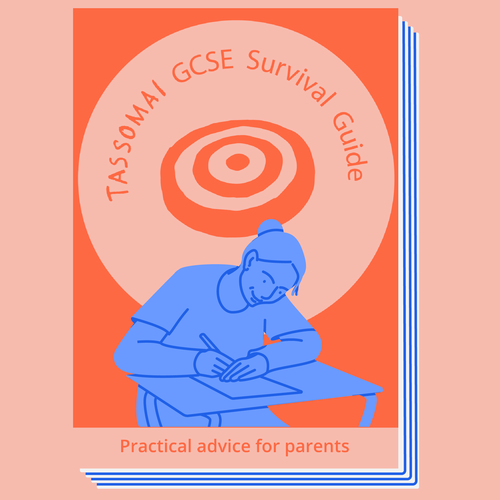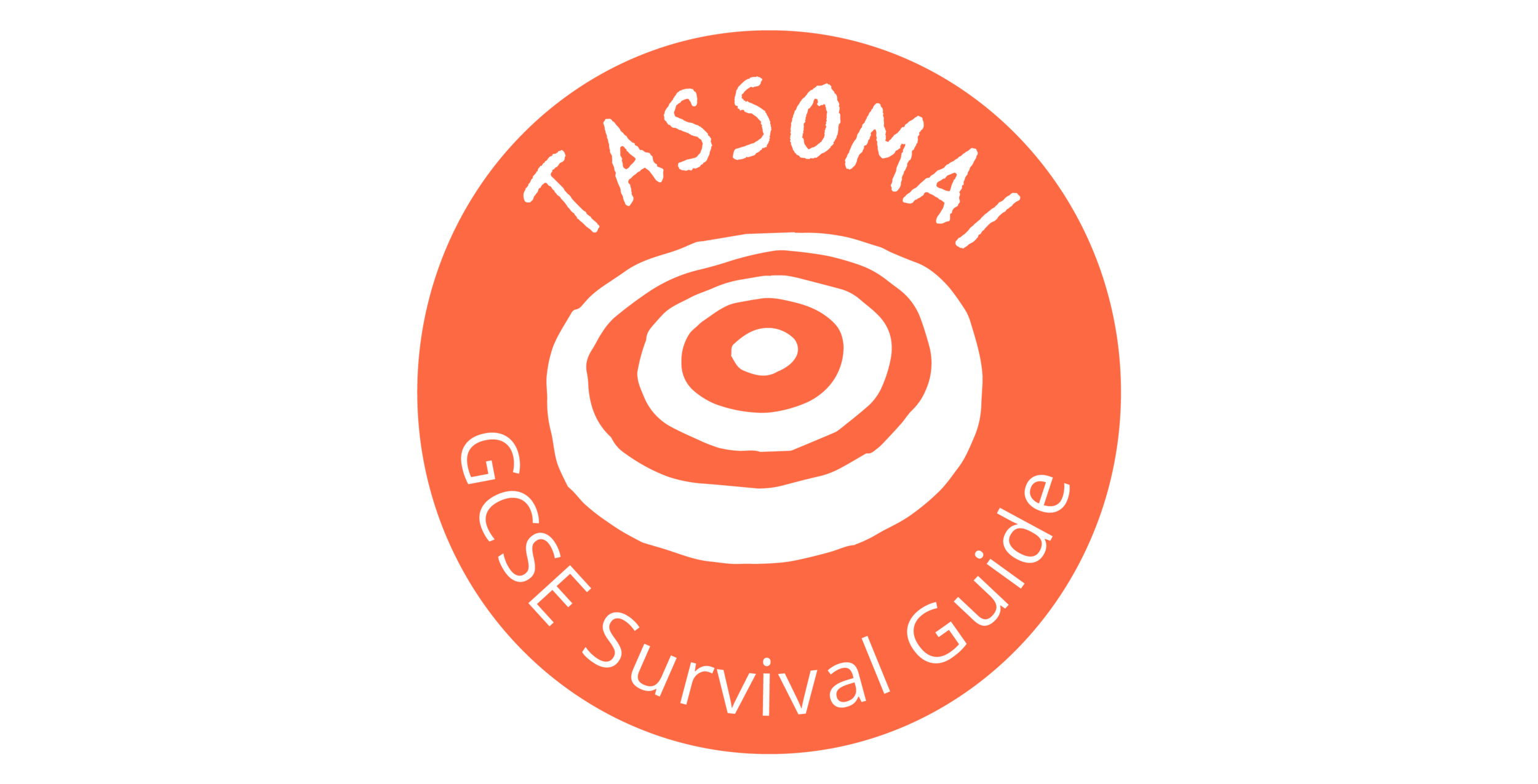Building background knowledge - the secret to success in GCSE English
Kathrine Mortimore, AAP for Literacy and LP at Torquay Academy and Author of Disciplinary Literacy, shares her advice for English revision and her experience of her time as part of the ongoing Torquay-Tassomai collaboration.

It is easy to feel unsure about how to help your child when they start their GCSEs. You can't manage the curriculum of your child’s school, but there is core knowledge that you can help them to build for their GCSEs from day one.
Quotation Learning
The English Literature GCSE is a closed book exam, so when it comes to home revision I think students often tend to focus on learning hundreds of quotations. Whilst learning quotations is an important part of revision, it’s actually not just about learning the quotations - it's also about learning an interpretation of that quotation that you’ll be able to bring to whatever question you have to answer in the exam.
In the exam, we don't know what characters are going to come up, we don't know what themes are going to come up… which is just the same as any other subject! Extended responses that show an understanding of the quotation and its significance are necessary to achieve a good grade.
Building Background Knowledge
Different children will come to the GCSE with different background knowledge. At our school, what we really try to do is to build as much of that background knowledge as early on as possible, especially for the texts that we know they're going to study at GCSE.
It’s important to help students to learn what we describe as “key concepts” right from the beginning, which can help them to understand ideas that texts explore more easily. For example, to grasp the significance of a poem that explores colonial attitudes, they need to have a background knowledge of what colonialism is. Without this knowledge, it is much more challenging for students to access the meaning of the work they’re studying.

Kathrine Mortimore is a contributor to Tassomai’s GCSE Survival Guide, a free 28-page handbook, full of practical tips and expert advice to help families navigate their way through GCSEs. Download your copy of the GCSE Survival Guide here.
So, what can parents do to help their child to build background knowledge?
A good starting point is to encourage your child to read as much as possible. If they're already at GCSE age, it's useful to find out what texts they are going to study so they can read more broadly in that genre - it's about schema building!
Using Tassomai
Tassomai can really help build up a student’s background knowledge and boost their confidence ahead of exams. At Torquay Academy we use the program in a slightly different way to most schools and we’ve actually created some unique quiz question content of our own, but the principles of Tassomai are the same regardless.
What we've built for Tassomai helps to push the key vocabulary and concepts that we're covering. Tassomai is great for retrieval practice but where it's really powerful, we have found, is with students learning the precise terminology and key concepts that facilitate their ability to articulate challenging ideas. For example, learning the terms ‘hubris’ and ‘narcissism’ are key to a thorough examination of Mr Birling in An Inspector Calls.
When teaching English in the past, we have found that it has often only been higher ability students that are really able to to capture and remember more sophisticated vocabulary that has been discussed within a lesson. We’ve found that using Tassomai can help with this kind of knowledge retention, so even if they aren’t able to recall this from class alone, they are able to over time. So sophisticated terms that are often floating around in the periphery of students’ minds can come with them into the exam.
- Kathrine Mortimore
@Kathrine_28
For more information on the award winning Tassomai and Torquay collaboration click here.
2025 is just beginning but exam season will come around quickly! Here’s what parents can expect over the next 6 months, and how they can help students prepare for exams.
As students look towards the new year, with the return of strict grade boundaries and exams looming on the horizon, Tassomai has published a free guide for students to help them navigate the challenging GCSE years.
As a new cohort of students embark upon their GCSE journey and others begin to think about their mocks, Tassomai has published an updated (free) guide for parents to help them navigate what can be a challenging time for families.
As we look towards end of year assessments, Tassomai asks mental health and education experts what their top pieces of advice are for parents supporting their children’s wellbeing.
Matt Green, The Rapping Science Teacher on tiktok and the owner of JGM Science Tutors, speaks to Tassomai about his foolproof method for getting revision started (unfortunately, it’s not rapping).
Karen Collins, Lead Science Associate for PiXL, speaks to Tassomai about the structure of the science GCSEs and how parents can best prepare themselves and their children for science assessments.
Are they burying their head in the sand like the ostrich or are they more like the laid-back lion? Tassomai founder Murray Morrison presents a few classic archetypes of exam-stressed children!
Abi Ludlow, English teacher and KS3 Lead at Richard Lander School tells parents exactly what they need to know about their child’s revision schedule, and where they fit in!
Andy Sammons is author of The Compassionate Teacher and Director of English and Strategic Lead at Kettlethorpe High School. Andy speaks to Tassomai about how the English GCSE subjects are structured and what parents need to know.
English literature and language are notoriously hard to revise for - or are they? Abi Ludlow, English teacher and KS3 Lead at Richard Lander School, gives her top tips on how to revise for the English GCSEs.
Kathrine Mortimore shares her advice for GCSE English students, using Tassomai for English and her experience of her time as part of the ongoing Torquay-Tassomai collaboration.
Our GCSE Survival Guide science expert, Kit Betts-Masters, explains exactly what parents need to know about the science GCSEs and how to get prepared for revision early.
Karen Collins, Lead Science Associate for PiXL, speaks to Tassomai about the structure of the science GCSEs and how parents can best prepare themselves and their children for science assessments.
Matt Green, AKA The Rapping Science Teacher on TikTok, writes for the Tassomai blog about the trickiest topics in GCSE science and how students can get ahead by tackling them early.
Our GCSE Survival Guide maths expert says that for GCSE maths, it’s essential that students get to grips with the basic core topics first and then build up from there.
Clinical child psychotherapist, Madeleine Inkin, writes about the developing adolescent brain and the impact that neurological changes have on decision making and behaviour.
Ben West unpacks the great myth surrounding GCSEs and how parents can maintain a healthy perspective in our GCSE Survival Guide blog post on student mental health.
Clinical child psychotherapist, Madeleine Inkin, writes about the neurological changes that young people are going through during the GCSE years, and how parents can manage their own expectations.
Sam Clark, teacher, writer and founder of Resilience for Kids gives us his best advice for parents on building resilience and supporting their children’s wellbeing. (Part of our GCSE Survival Guide series.)
Teenagers’ brains are on a developmental rollercoaster during the GCSE years, but what really makes teenagers act like… teenagers? Our GCSE Survival Guide contributor Madeleine Inkin has the answers!
Ben West gives his top tips on recognising the signs that your child might be struggling, when to act (spoiler: as early as possible) and how you can help as a parent in our GCSE Survival Guide blog post on student mental health.
Sam Clark, teacher, writer and founder of Resilience for Kids gives us his best advice for teachers on building resilience and supporting students’ wellbeing.
The Tassomai team has put together a free guide for parents and a series of blogs with advice from subject specialists, education experts and mental health campaigners.
Guest blogger Kit Betts-Masters from Gorilla Physics explains how students can revise more effectively and get the top grade at GCSE.
Elaine subscribed to Tassomai to help her daughters through their GCSEs. The family have seen the impact that Tassomai can have on grades, exam stress and revision planning.























